Swamp Thing vs. Monsanto-esque corporation as both its 'ultimate prize and impediment'
It's about "someone who can see more clearly how messed up the human race is because he sees it a little more clearly each day as an outsider"
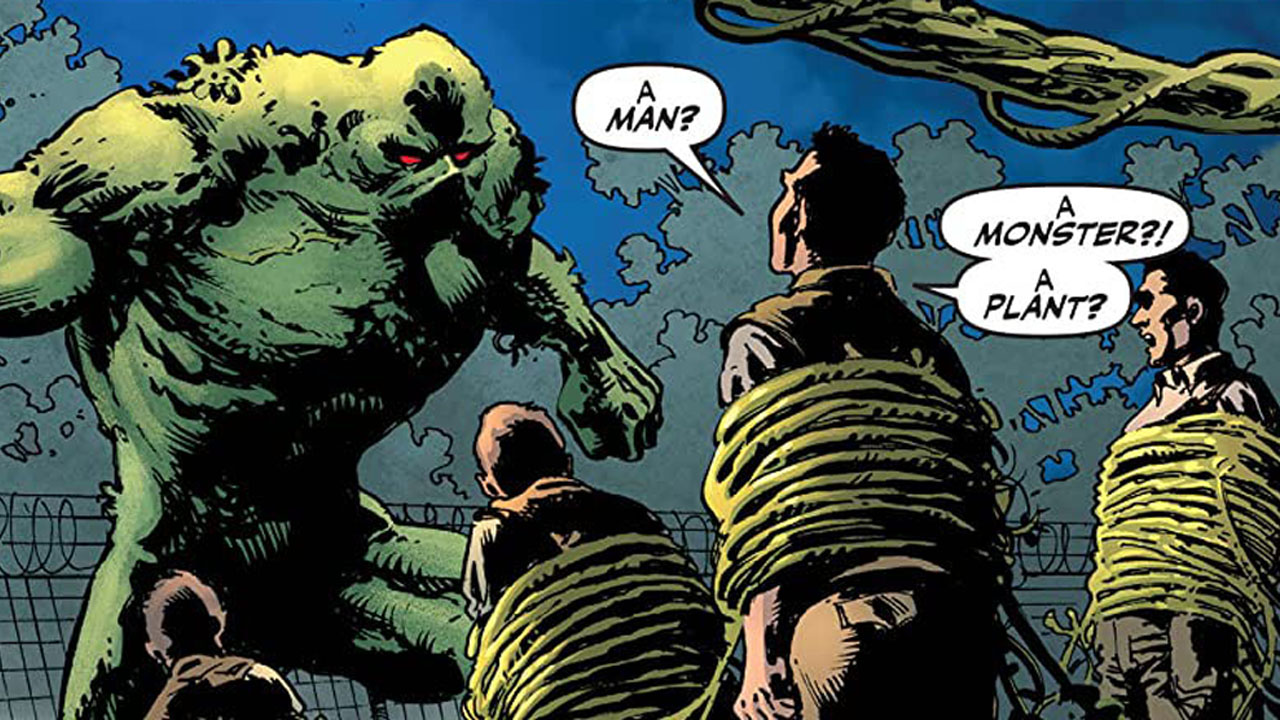
DC's Swamp Thing has a new series, but if you've been looking for it in comic books you might have missed it.
Seeded in DC's recent Swamp Things Giant anthology, this serial has grown into its own thing as the DC 'Digital First' title Swamp Thing: New Roots. Debuting April 26 while print comic books were at a standstill, the weekly series running 16 pages and $.99 an issue started with a social horror tale of Swampy by writer Mark Russell and artist Marco Santucci.
Russell, who traded in the colorful worlds of The Snagglepuss Chronicles and Wonder Twins for this dip in the muck, spoke with Newsarama about his recently concluded arc, his connection with the character, and his personal favorite stories from Swamp Thing's past.
DC has not announced a collection of Russell and Santucci's Swamp Thing run, but we'll be surprised if it comes sooner rather than later.
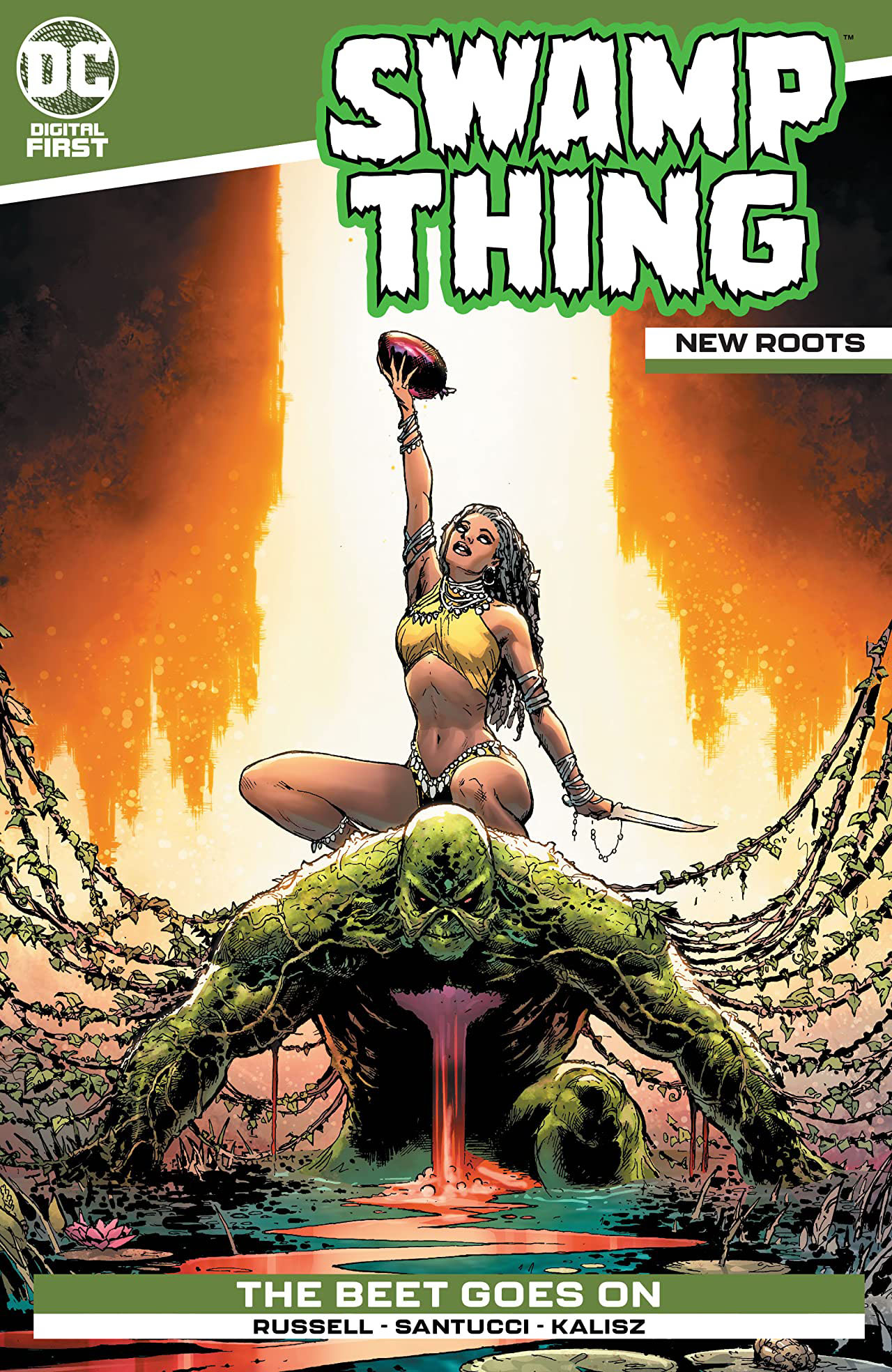
Newsarama: Swamp Thing is one of DC's secret weapons of a sort, but also an unconventional leading man-plant. What was it that drew you to the character?
Mark Russell: I've always loved Swamp Thing. He has the soul of a poet, the mind of a scientist, and the body of a monster. He struggles, more than most characters in the DC Universe, with what it means to be human and that struggle gets harder with each passing day as his life as a human becomes an ever fainter memory. I wanted to write about that. About someone who can see more clearly how messed up the human race is because he sees it a little more clearly each day as an outsider.
Nrama: New Roots also fits nicely into your canon of speaking on and critiquing those in power and institutions.
Get the best comic news, insights, opinions, analysis and more!
Were the Monsanto-esque antagonists always part of the pitch? Do you feel that Alec's eco-friendly politics were something missing from current era Swampy stories?
Russell: A Monsanto-esque agricultural megacorporation seemed like a natural villain for Swamp Thing. As these companies start trademarking the genomes of plants that have existed for tens of millions of years, claiming ownership, in effect, of species that they did nothing to create, Swamp Thing seems like he would be both the ultimate prize and impediment.
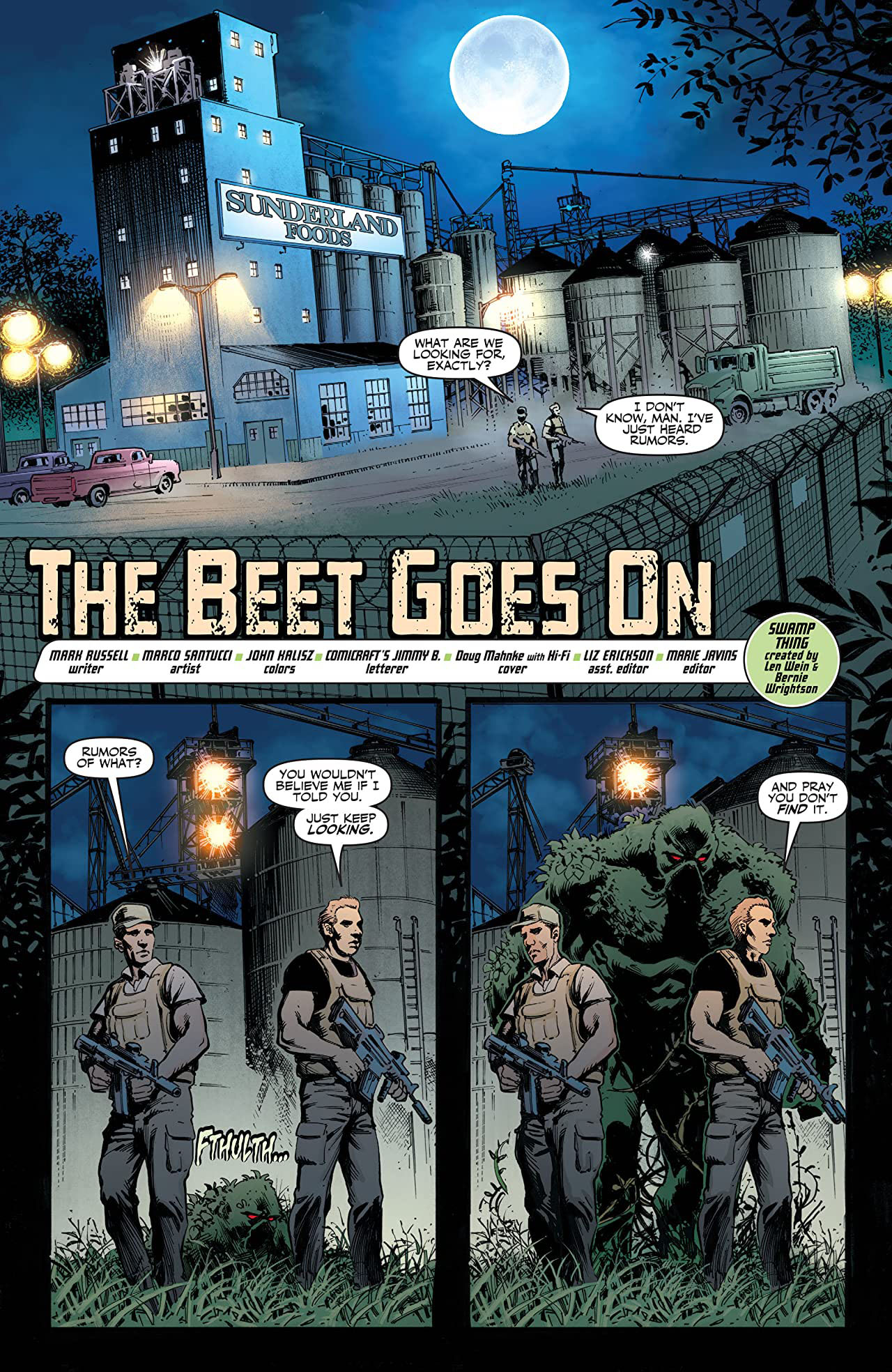
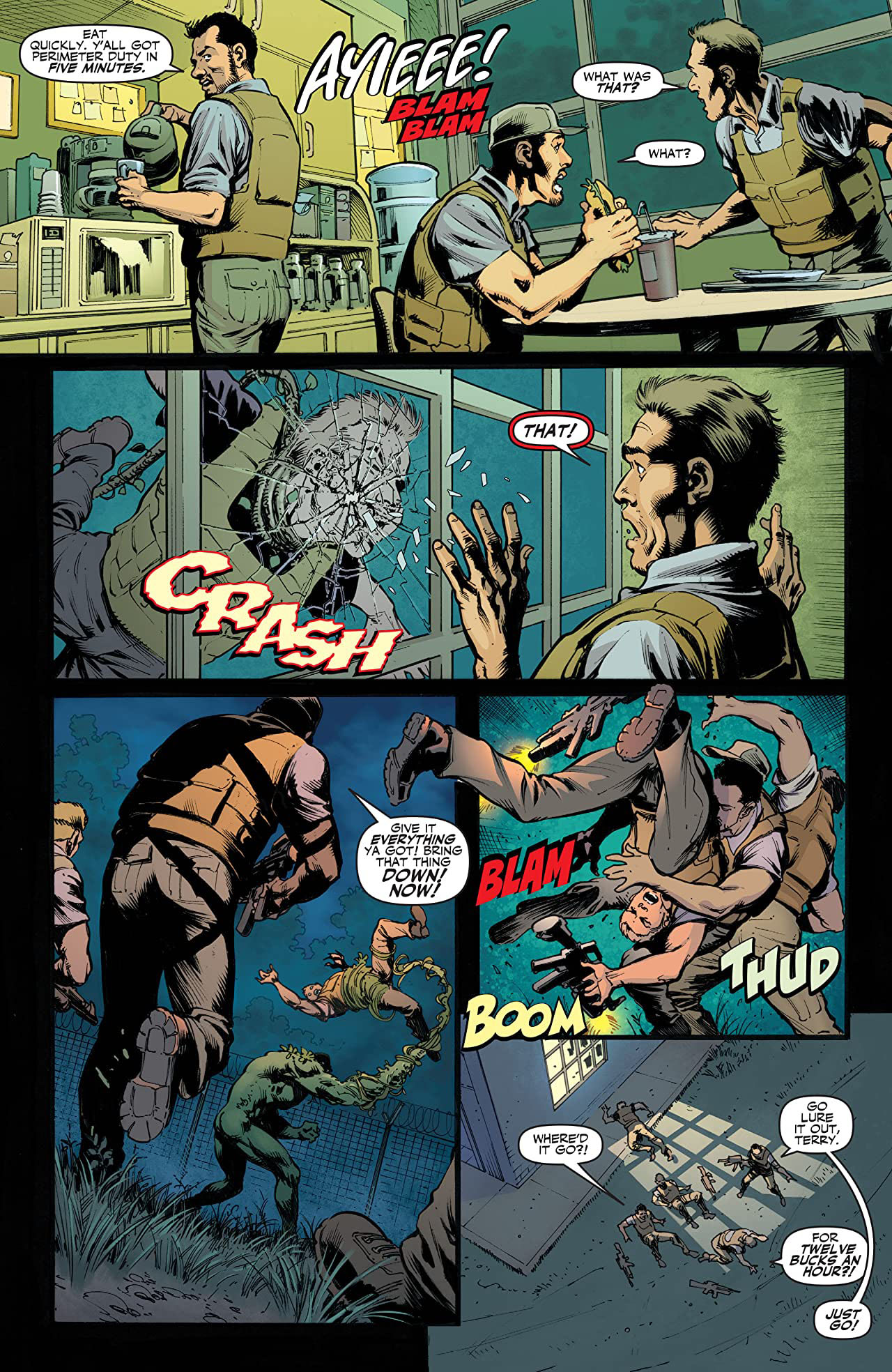
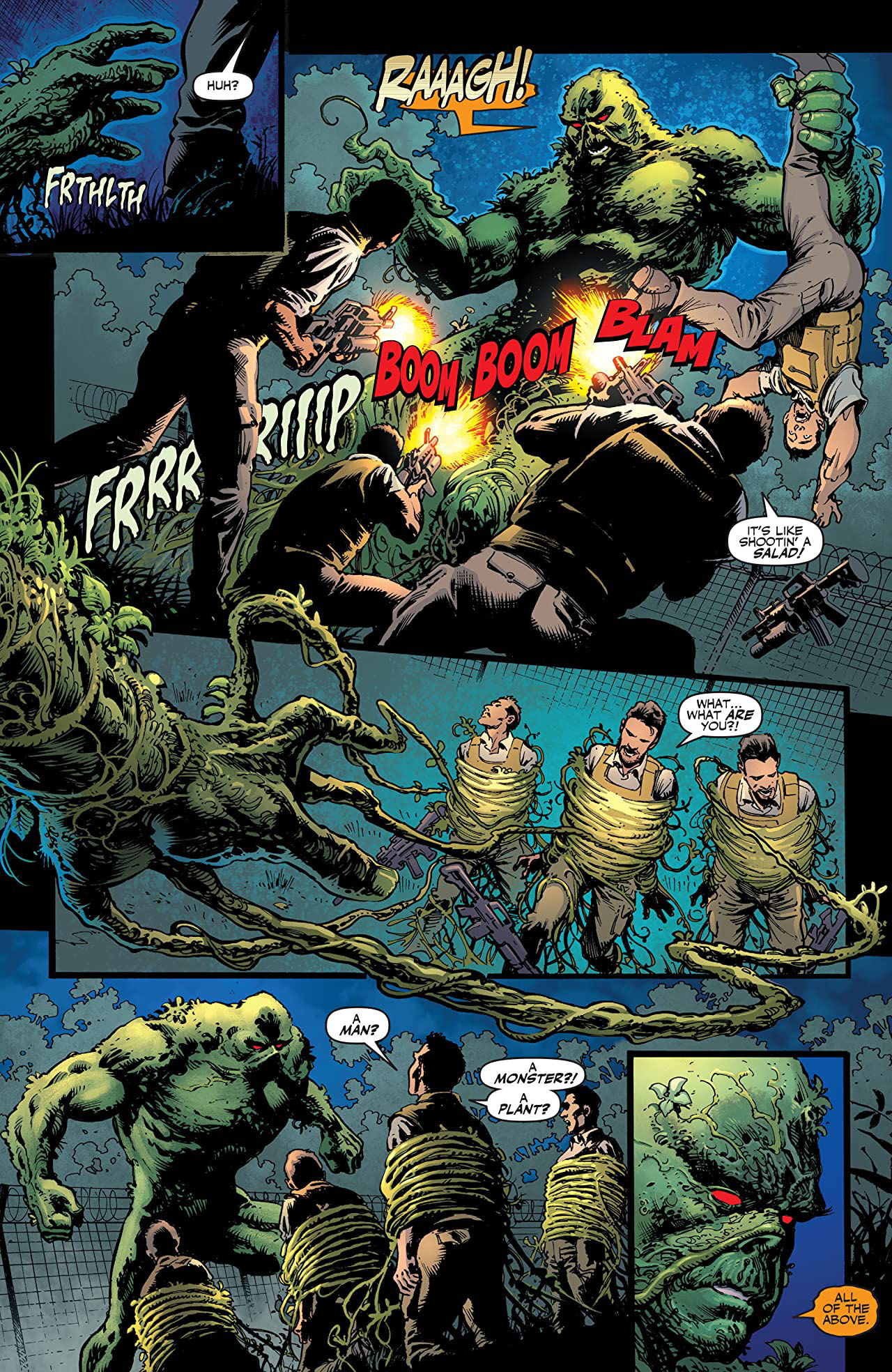
Nrama: New Roots got its start in the new line of 100-Page-Specials aimed at gaining new readers. How did that inform the way you wrote the scripts or did it even factor in at all?
Russell: Yes, it did, in a way. I was originally told these stories were going to be released in 8-page chunks, so I wrote them so they could have natural-feeling cliffhangers at the 8-page mark. I've yet to see any of these stories published in such a way that splits these stories in half, but I still think it was a good writing prompt to keep these stories feeling urgent.
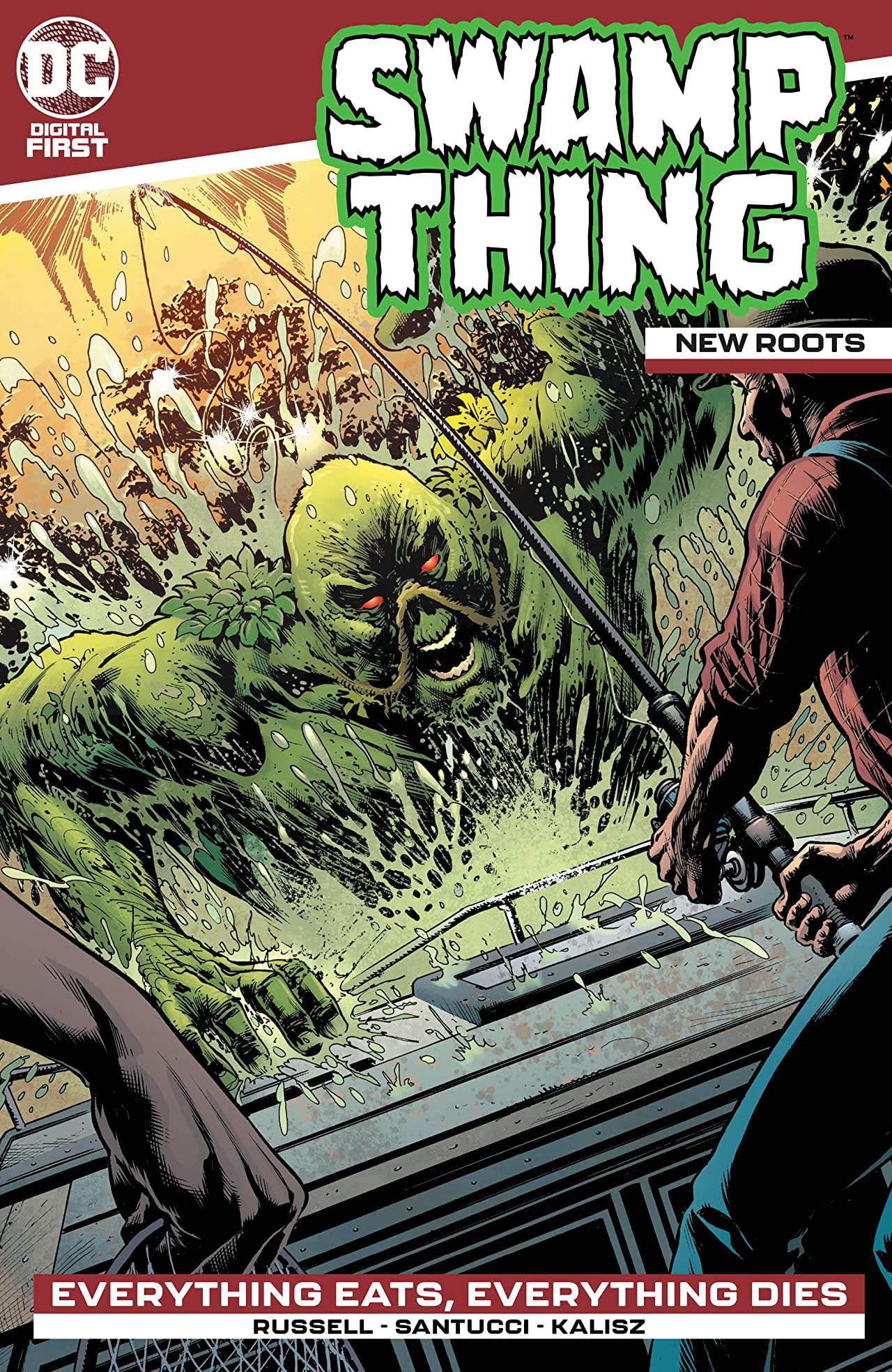
Also, working with just 16 pages as opposed to 20, or my customary 22, limits the amount of world-building and navel-gazing you can do with one of these stories. Which was refreshing, in a way, because I approached them more as straight-forward action stories than I might have otherwise.
Nrama: Are you thinking of New Roots more as an "ongoing" or more like an old-school serial?
Russell: I approached it very much as an old-school serial. Almost like a monster movie matinee from the '50's, but where the Creature from the Black Lagoon is our civilization rand the monster it is hunting is the hero. It tells a finite story that ends at the end of issue 6, but I would be open to continuing it or writing a longer, more developed Swamp Thing story in the future. This was just the story I felt I could tell in six sixteen-page installments.
Nrama: Are you a horror person at all? The first few issues of New Roots suggests you might be, but I'm curious as to how you handled the switch in tone, going from largely concept heavy comedies like The Flintstones to pretty wry horror-comedy here. Was this there all along and we just didn't see it?
Russell: Yes. I'm especially drawn to the social horror genre. Things like Get Out and They Live that use horror tropes as a metaphor for social commentary.
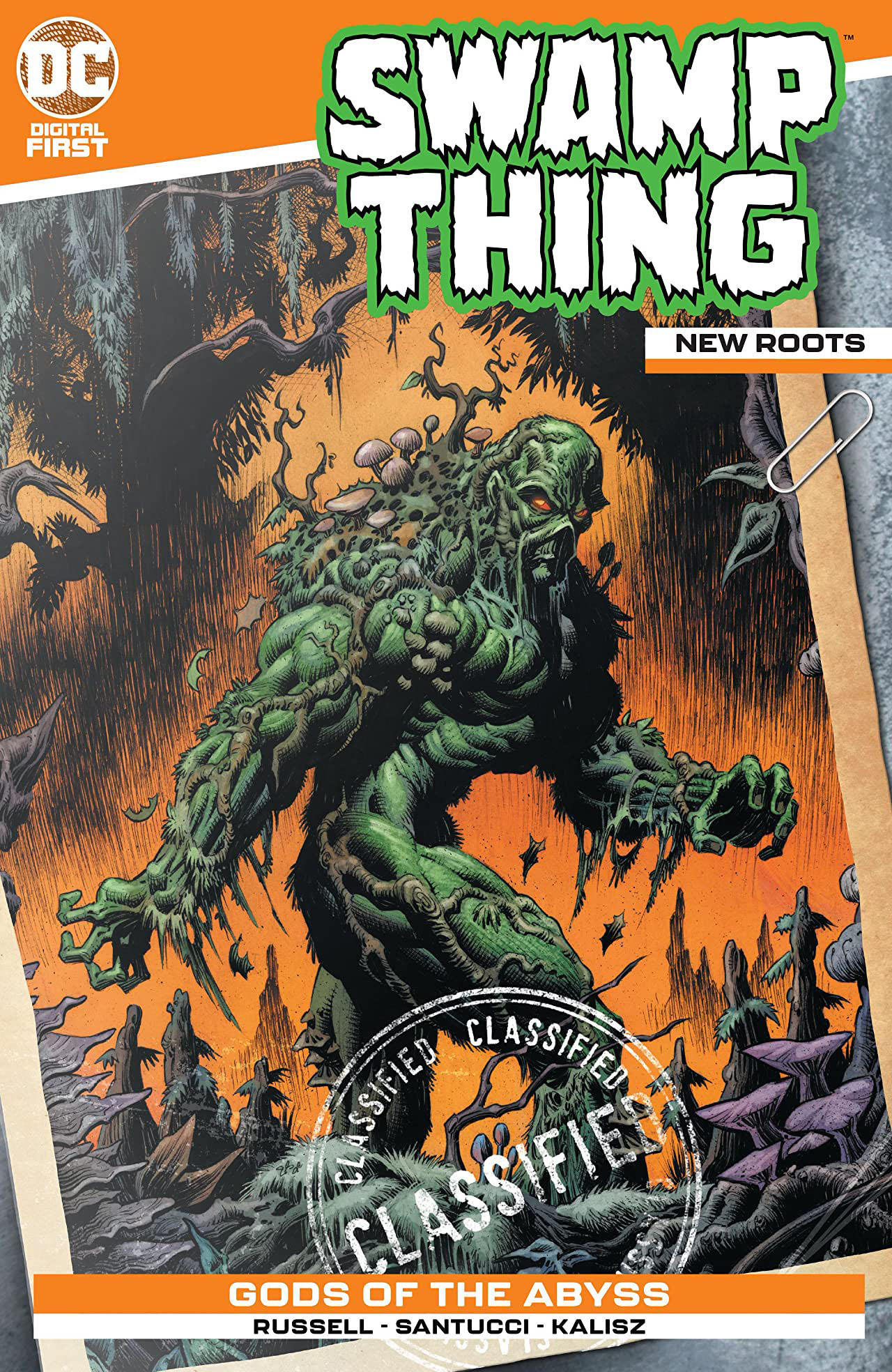
And that was what I was hoping to do here. To talk about how there are limits to how much we can subordinate science and reality to our greed. That, even if no one stops us, it will simply blow up in our face.
Personally, I consider myself a writer. I'm not especially loyal to any genre or medium, so long as I get to talk about the world as I see it and how it's destroying us.
Nrama: Has this got you thinking of other DC supernatural characters you could tackle? Can we expect Mark Russell's Phantom Stranger here in the next few years?
Russell: "Expect" is a strong word. I did pitch a Spectre series a couple of years ago, but I think it was too wacky for anything to come of it.
Nrama: Are you considering New Roots as a "sidestory" in Alec's history? Meaning more, how much context did you come to the character with?
Russell: I've read most of the major Swamp Thing runs, but I didn't want this to fit neatly and forgettably as a side note to the character's history. What I wanted was to write a memorable and unique horror story using Swamp Thing. A sort of modern day B-movie with a point.
Nrama: Did you need to do a bunch of research beforehand or was there some element of wanting to add to the Swampy "mythos" in any way?
Russell: No, I didn't need to do too much research. I've long loved Swamp Thing and jumped at the chance when they asked me to write a Swamp Thing series.
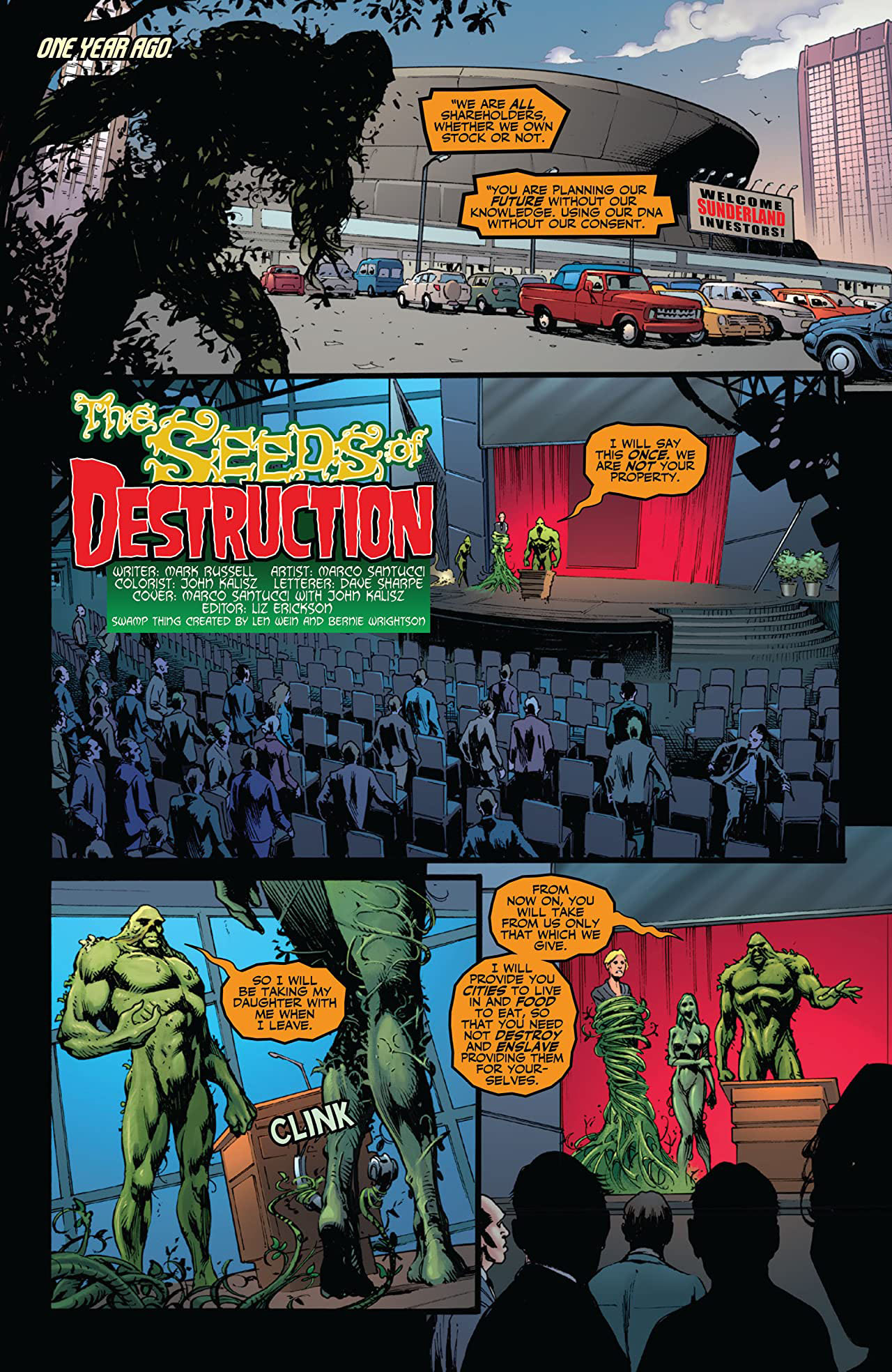
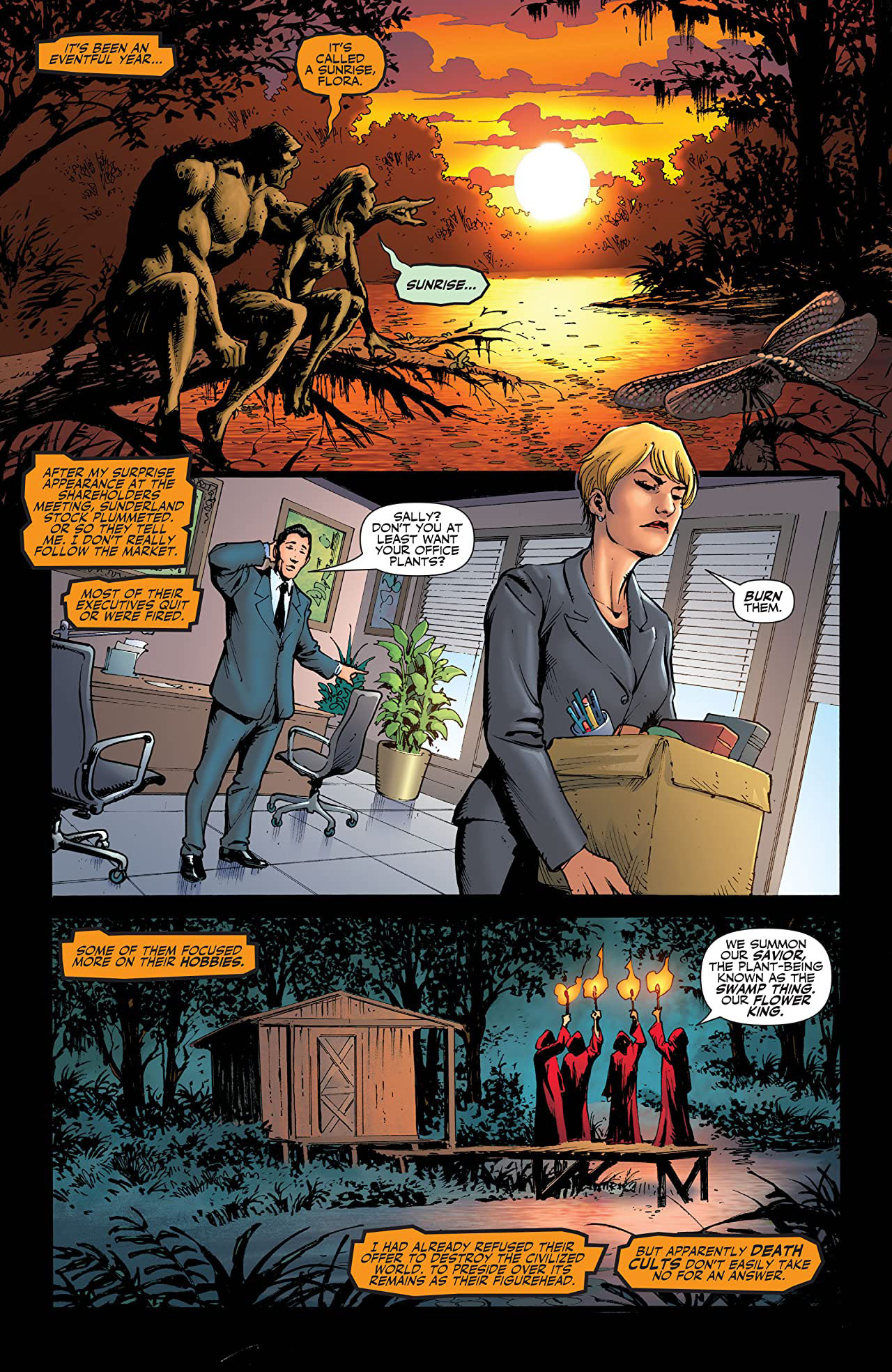
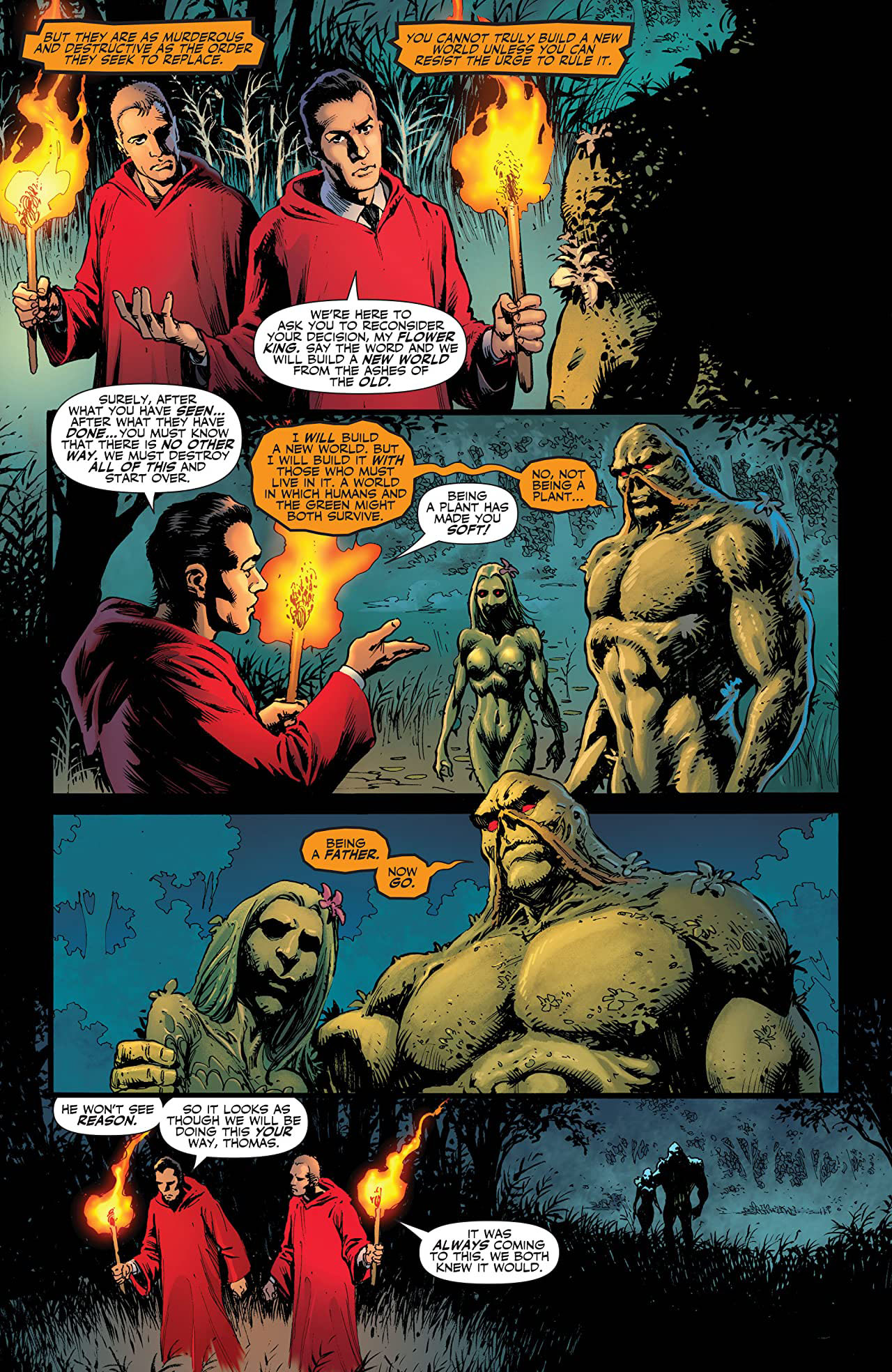
Nrama: Are you eager or resistant to use some of the more better-known co-stars, like Abby Arcane or Matt Cable? Or are you aiming for New Roots to be more user-friendly as a "first" Swamp Thing story? No spoilers, of course, but you can tell us. We won't tell anyone, we swear.
Russell: The latter. I wanted this story to be very accessible. Especially to first-time readers, which is the target audience of these 'giants' anyway. I didn't want to get too deep into the traditional cast of characters or the continuity because I didn’t want people picking up these comics to feel like they were coming in at the middle of a book club meeting.
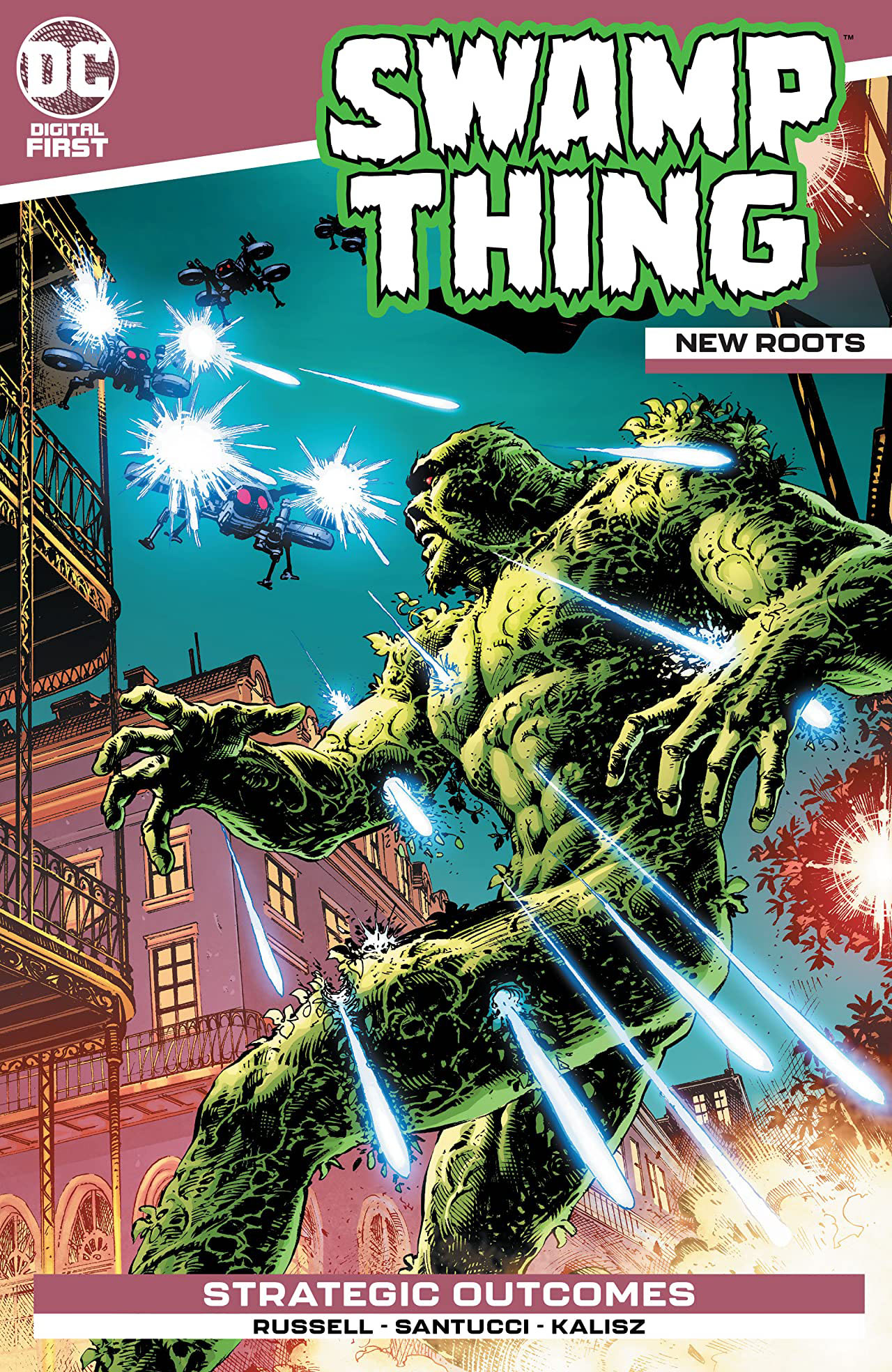
I'm not really interested in ever writing for continuity hounds. I want the stories I write to work independently of what anyone else may have written before me.
Nrama: Finally, what is your personal favorite Swamp Thing story? You seem like a 'My Blue Heaven' kind of person. Very sophisticated suspense, for sure. I could be wrong.
Russell: My absolute favorite Swamp Thing story of all time is 'The Curse' [Editor's Note: Saga of the Swamp Thing #40]. An Alan Moore story about a housewife who turns into a werewolf and goes on a rampage against everything in the town, from her husband to the supermarket, that has kept her bottled up in quiet oppression for her entire life. It works on every level, as a horror story, as a dark comedy, and as social commentary.
To me, this is what great writing aspires to do, whatever the genre. To appeal to us, not only as a good story, but also as something with intellect and emotional resonance, too.
My Blue Heaven is great, too, though.
Justin Partridge is a freelance journalist who can be found at GamesRadar+ and Newsarama writing reviews about the best comic books out there. He's also known to put his encyclopedic knowledge of the industry to work by exploring some of the biggest events in comic book history.


